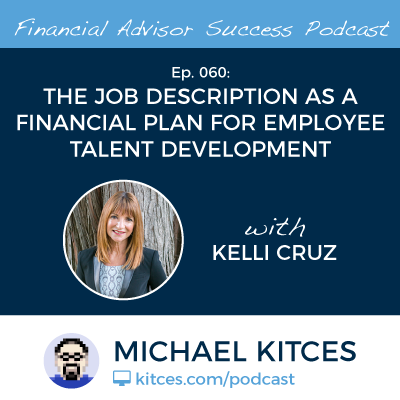In recent years, the world has been awash in fiduciary regulatory for financial advisors, from the Future Of Financial Advice (FOFA) reforms in Australia, to the Retail Distribution Review (RDR) changes in the UK, and the Department of Labor's rule here in the US, all focused on requiring financial advisors to act in the best interests of their clients, and to reduce or eliminate conflicts of interest (especially around commission compensation). Yet while the DoL fiduciary rule has been repeatedly delayed in the US, in many other countries the fiduciary reforms have already taken effect... and now we're beginning to see the next stage of fiduciary legislation emerge.
In this week’s #OfficeHours with @MichaelKitces, my Tuesday 1PM EST broadcast via Periscope, we examine the new round of financial advisor regulation emerging in Australia, which focuses specifically on competency standards, and what it suggests about what may come next for advisor regulation in the US, and what financial advisors here should be thinking about in order to “future-proof” their own careers against potential future regulation!
Since adopting fiduciary requirements under the FOFA reforms (Future of Financial Advice) in the summer of 2012 and fully implementing those reforms in 2013 (in stark contrast to the ongoing debate in the US over DoL fiduciary which began around the same time but still isn't fully imiplemented!), Australia has served as a place that advisors can look to see what trends may be coming in the future of financial advisor regulation.
And in that context, Australia has followed up their fiduciary standards with a new round of standards of financial advisor competency, as the reality is that it’s not enough to just have a fiduciary duty for financial advisors to act in the best interests of their clients, but it’s also essential for the advisor to have the technical competency and training needed to know what’s in the best interests of the client in the first place! In essence, the new competency rules would require that all financial advisors have a college Bachelor’s degree, a full professional year of experience, pass a comprehensive exam to demonstrate their competency in core knowledge domains, and commit to ongoing continuing education and ethics requirements. Notably, this is the exact same framework as the CFP Board's “Four E’s” requirement that already exists in the US: Education, Exam, Experience, and Ethics.
However, just as not even 30% of advisors here in the US have the CFP marks, it is estimated that only about 25% of the financial advisors in Australia will be able to meet the new competency standards there. Accordingly, the regulators are providing a substantial transition period for Australian advisors.
This is important for advisors in the US, as it gives some hint about what may be the next shoe to drop in the regulation of financial advisors here, either in the form of literally requiring the CFP marks to practice – making CFP certification a minimum competency standard for all financial advisors rather than just a voluntary designation – or similar to Australia, some separate-but-similar competency requirement that’s administered directly by a government regulator or an independent entity the regulator creates.
On the plus side, the changes in Australia should not just improve competency to ensure there’s good advice, but also improve consumer trust in financial advisors in the first place. Because even if you show great warmth and caring for clients, if they don't believe that financial advisors are competent in the first place, it's difficult to build the necessary trust to have an effective advisor/client relationship. Which is why I think it’s such a big deal that Australia is now rolling out a financial advisor competency standard. Because lifting competency and education standards not only improves the quality of advice, but also trust in financial advisors.
But these changes also mean that, if you’re a financial advisor who wants to “future-proof” your own career, then you really should be reinvesting into advancing your education with programs like CFP certification. As Australia has shown, there will probably be some grace or transition period, so if you’re within 5-10 years of retirement already, you’ll likely be safe to just ride out the status quo. But if you’re younger than that, and still have a longer time horizon in the business, there’s increasingly a risk that once the first round of the fiduciary rule to act in clients’ best interests is done, the next round is going to be about competency standards... which means it may be a good idea to get started future-proofing your own career sooner rather than later! And if you are a CFP certificant today, and you use that to differentiate yourself from the 70% of advisors who don’t, recognize that it’s not going to be a sustainable differentiator for you once the regulators lift the competency standards for everyone... which again highlights the importance of developing your niche and specialization, so that you can stay one step ahead.
The bottom line, though, is just to recognize that much like Australia served as an indicator for what regulation was to come under DoL fiduciary (with a fiduciary rule that took effect 5+ years ahead of the US), Australia's new adoption of competency standards for financial advisors may be a good indication of where the regulatory focus will be next in a post-fiduciary world in the US. Which means, if you haven't invested in your education to meet such standards, you may want to start now. And even if you have, it's important to realize that merely fulfilling the "four E's" going forward will no longer be a differentiator!

 Welcome, everyone! Welcome to the 60th episode of the Financial Advisor Success Podcast!
Welcome, everyone! Welcome to the 60th episode of the Financial Advisor Success Podcast! Welcome, everyone! Welcome to the 59th episode of the Financial Advisor Success Podcast!
Welcome, everyone! Welcome to the 59th episode of the Financial Advisor Success Podcast!
